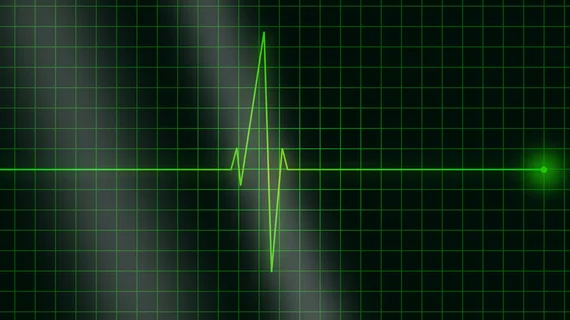A single heartbeat is all a new neural-network technique needs to detect heart failure with 100% accuracy, according to a study slated for January 2020 publication in Biomedical Signal Processing and Control Journal.
The authors, working from three universities in Europe, trained and tested their convolutional neural network on large, publicly available electrocardiogram (ECG) datasets from patients with congestive heart failure as well as those with healthy, non-arrhythmic hearts.
“By checking just one heartbeat, we are able detect whether or not a person has heart failure,” says study co-author Sebastiano Massaro, PhD, of the University of Surrey in a news item posted by that U.K. institution.
He adds that the model is one of the first shown capable of identifying an ECG’s morphological features specifically associated with the severity of the heart failure.
Senior study author Leandro Pecchia, PhD, of the University of Warwick, also in England, says the advance is clinically significant since close to 26 million people worldwide are hit by heart failure.
The research “drastically improves existing congestive heart failure detection methods typically focused on heart rate variability that, whilst effective, are time-consuming and prone to errors,” the University of Surrey states. “Conversely, the new model uses a combination of advanced signal processing and machine learning tools on raw ECG signals, delivering 100% accuracy.”
Also contributing to the research was the University of Florence in Italy.
Click here to read the full study posted online ahead of print and here for the news item.

